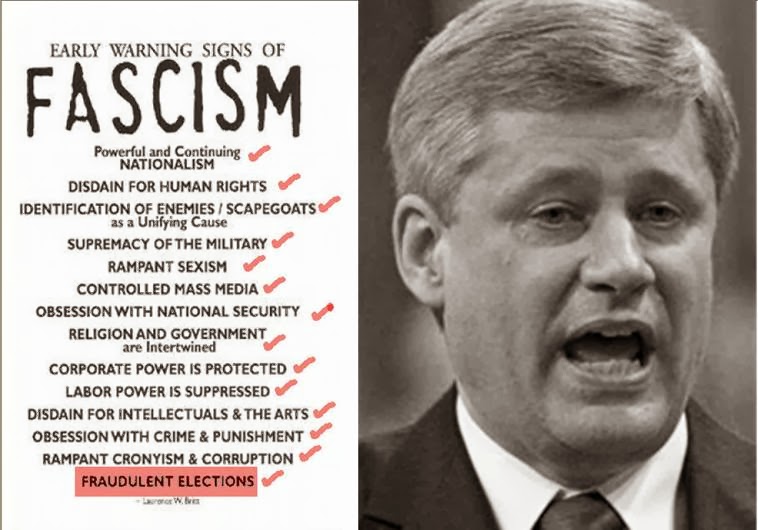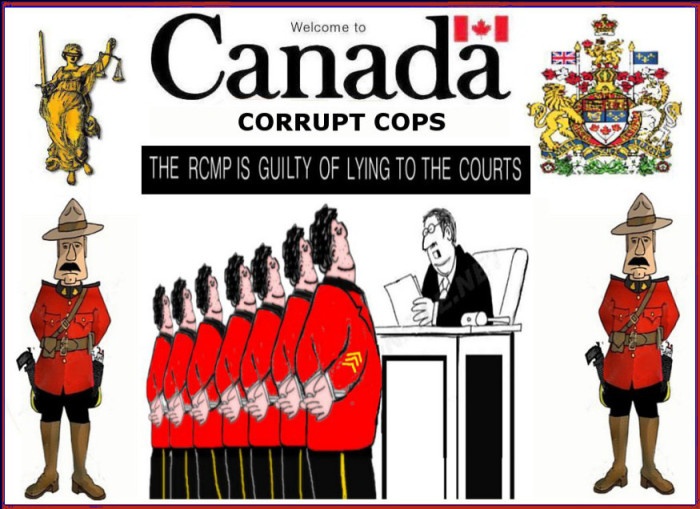Comment by Andrew Williams:
The behaviour of the RCMP is extremely disturbing, but not out of character. They have been used in the past to remove forcibly indigenous children from their homes and arrest parents who resisted; they have hauled Tahltan granneis off their ancestral lands when they protested industrial developments; and they have arrested peaceful protestors in Burnaby at the Trans Mountain pipeline route. Molly is right: the RCMP have become a paramilitary private enforcement agency for government and corporations. So much for UNDRIP.
Rachelle Van Zanten – My Country Uploaded by bootshank, May 6, 2011
Inspired by images of Tahltan women blockading coalbed methane mining by Shell and Fortune Minerals in defense of the Sacred Headwaters in northern British Columbia, Rachelle wrote ‘My Country’. She was invited to perform it for the Tahltan people at the Iskut Music Festival a year later, where we filmed this video.
Gidimt’en spokesperson Sleydo’, a.k.a. Molly Wickham, accuses RCMP of acting as mercenaries for industry by Charlie Smith, December 21st, 2019, Straight.com
An Indigenous woman has issued a scathing statement about the RCMP in the wake of an astonishing news story about a police raid on traditional Wet’suwet’en territory last winter.
Sleydo’, a.k.a. Molly Wickham, was among 14 people arrested at the Gidimt’en Checkpoint on January 7 when heavily armed Mounties arrived to enforce a B.C. Supreme Court injunction obtained by Coastal Gaslink Pipeline Ltd.
On December 20, the Guardian reported that the RCMP was prepared at that time to use lethal force, arrest children and grandparents, and apprehend the demonstrators’ children.
“We have never ceded or surrendered our lands,” Sleydo’, the Gidimt’en Checkpoint spokesperson, said. “This is an issue of rights and title with our sovereign nation, and RCMP are acting as mercenaries for industry.
“With terminology like ‘lethal overwatch’, ‘sterilize the site’, and the threat of child welfare removing our children from their homes and territory, we see the extent to which the provincial and federal governments are willing to advance the destruction of our lands and families for profit,” she continued.
“The state has always removed our people from our lands to ensure control over the resources. This has never changed.
“At a time when the province has introduced the UNDRIP legislation, the RCMP are occupying our territory for the sole purpose of protecting industry and ensuring extractive projects proceed unhindered.”
UNDRIP is an acronym for the United Nations Declaration on the Rights of Indigenous Peoples.
[Canadian courts and federal and provincial gov’ts don’t give a damn about civil Canadians, public health, environment or drinking water for non-indigenous people either. And allow, perhaps directed by polluters, RCMP to invade private property of frac harmed Canadians to harass and intimidate them into silence, and in Ernst’s case, try to scare her into dropping her lawsuit against polluting, law-violating aquifer frac’er Encana, and law-violating AER and Alberta gov’t.]
Article 10 states: “Indigenous peoples shall not be forcibly removed from their lands or territories. No relocation shall take place without the free, prior and informed consent of the indigenous peoples concerned and after agreement on just and fair compensation and, where possible, with the option to return.”
On May 30, 2018, Parliament passed Bill C-262, which calls for the laws of Canada to be in harmony with UNDRIP. The bill, which was sponsored by former NDP MP Romeo Saganash, has gone through a Senate committee but still hasn’t received Royal Assent.
[It’s likely that industry and Canadian racists in power federally and appointed to the Senate will make sure it never will]
On November 28, Royal Assent was granted to a provincial law, 2019 Declaration on the Rights of Indigenous People’s Act. This legislation affirms that UNDRIP applies to B.C. laws.
Coastal GasLink obtained agreements from all the elected First Nations councils along the 670-kilometre pipeline route from northeastern B.C. to the yet-to-be-built LNG Canada facility near Kitimat.
It’s part of a $40-billion private-sector project that’s received a green light from the federal and provincial governments.
But hereditary chiefs claim jurisdiction over their traditional territories and insist that elected chiefs and councils only have authority over reserves created under the Indian Act.
Coastal GasLink is a subsidiary of TC Energy, formerly known as TransCanada Pipelines. It’s pushing forward with the Keystone XL pipeline project over the objections of Indigenous people on both sides of the U.S.-Canada border.
In 1997, hereditary Wet’suwet’en and Gitxsan chiefs won a landmark ruling in the Supreme Court of Canada when all nine judges affirmed the existence of Aboriginal title post-Confederation. The Wet’suwet’en, like most B.C. First Nations, have not signed treaties with the Crown.
In 2011, a B.C. Supreme Court ruling stated: “Each Wet’suwet’en chief has rights and responsibilities specific to the particular territory over which that chief has been given a duty to protect.”
Gidimt’en Checkpoint @Gidimten
Nothing has changed in 150 years! They are willing to kill us for our lands and steal our children. We will never give us @JustinTrudeau @jjhorgan https://www.theguardian.com/world/2019/dec/20/canada-indigenous-land-defenders-police-documents …
Notes from strategy session for raid on Wet’suwet’en nation’s ancestral lands show commanders argued for ‘lethal overwatch’
There are five Wet’suwet’en clans. Each has its own house groups. One of those clans is the Gidimt’en, which is led by Hereditary Chief Woos. Sleydo’ is the Gidimt’en spokesperson.
“The facts released by the Guardian’s exclusive article today to the Canadian and global public reveal the reality between Indigenous peoples protecting our lands and RCMP since contact and continuing today,” Sleydo’ said in her statement.
“Here we are, nearly 2020, and we are still being threatened with violence, death, and the removal of our children for simply existing on our lands and following our laws.”
In the Witset feast hall in December 2018, the clan announced that it was creating the checkpoint to protect its territory as well as the territory of the neighbouring Gilseyhu clan. Its members have created the Unist’ot’en Village, which it describes as an “Indigenous reoccupation of traditional territory”.
According to the Guardian, RCMP commanders issued instructions that officers could “use as much violence toward the gate as you want” when taking down the blockade at the Gidimt’en Checkpoint in January.
The Gidimt’en clan called that “abhorrent”.
“We want to live free on our lands, without the constant threat of violence by CIRG (Community Industry Response Group), who are illegally occupying Gidimt’en territory,” Sleydo’ said.
Public Safety minister says RCMP language about Wet’suwet’en ‘unacceptable’ by Jamie Pashagumskum with files from Lee Wilson, December 23, 2019, APTN
Canada’s minister of Public Safety says he has raised concerns with the RCMP about what he calls “unacceptable words and phrases” that were found in RCMP documents from the Jan.7 raid and arrest of 14 members of the Wet’suwet’en in British Columbia who were trying to stop the Coastal GasLink pipeline.
Bill Blair was responding to a report in the Guardian, an online news site based in London, U.K., that reportedly obtained documents that revealed the RCMP was prepared to deploy snipers against Indigenous protestors.
The report also states that the RCMP referred to “sterilizing the site,” and instructed officers participating in the raid to “use as much violence toward the gate as you want.”
APTN News has not independently verified the contents of these documents.
Wet’suwet’en leaders also responded to Friday’s news that the RCMP was authorized to use lethal force during the raid.
Molly Wickham, whose traditional name is Sleydo, expressed outrage about the report.
“The RCMP and the government have been willing to use this much force against us since last year and it’s quite shocking for the world to hear that and see that,” Sleydo said.
“We need for people to keep an eye out and keep watch on what’s happening and put pressure on their own governments to stop interfering with us being Wet’suwet’en.”
Freda Huson of the Unist’od’en village says the RCMP was there to protect corporate interests.
“Any issues with CGL [Coastal GasLink] and they are here within minutes and they set up a station down at 29 KM. Soon as they are called they are here really quick. They appear to us to be CGL’s private security. They are not here to protect the public,” said Hudson.
On Sunday, Senator Murray Sinclair expressed similar concerns about “courts granting court injunctions in such disputes too readily, and the RCMP becoming a security arm for private interests.”
An RCMP spokesperson said the Guardian report was “unsubstantiated, incomplete and inflammatory.” [Pffft! Who believes or trusts the RCMP (or our courts) anymore? They lost all credibility years ago, paid by Canadians yet operating as private oil and gas thugs]
“Relationships between the RCMP and all stakeholders that have been years in the making, have been damaged and now require rebuilding,” said Janelle Shoihet. “The RCMP has reached out to request a meeting with Hereditary Chiefs and is hopeful this meeting will soon occur.
“In the interim, the RCMP has commenced a review of all documents relating to the enforcement of the court ordered injunction and to date can find no documents or references, which reflect statements made in the article.” [Ha, what a bunch of liars. Why would the RCMP tell the truth to the public, when it’s been proven that they don’t tell the truth in court?]
Guardian reporter Will Parrish says he’s surprised the RCMP couldn’t find their own documents to review. [Sweet excuse for our lame cowardly bullies, the RCMP!]
“It’s hard to imagine the RCMP wouldn’t know where to look for these documents because, as I told them, the records are police strategy sessions regarding the raid and audio and video files regarding the raid,” he said.
The RCMP was ordered by the British Columbia Supreme Court to enforce the injunction. [Canadian courts have become as untrustworthy and vile as our police, notably with the many creepy judicial appointments by Steve Harper]

And that when the force deploys its Emergency Response Team, it’s composed of officers who serve different roles – including “sniper observer.”
But Sleydo doesn’t buy it. [Me neither]
“I don’t know how you take a sniper out of context, either they were here or they weren’t. We know what snipers are for and they were here and they were watching all of us the whole time.”
In a written statement, Coastal GasLink defended its Unist’ot’en Camp access protocol.
“The protocol has worked well since it was signed in the spring and we look forward to continuing to engage with Dark House on access and our mutual interest of safety. There remains in place a legal injunction, which is enforceable by the RCMP and whose actions Coastal GasLink does not direct,” the company said. [BULLSHIT!]
“We have no operational control or influence over RCMP activities and will not be making comment on unsubstantiated claims,” it added.
Wet’suwet’en hereditary leaders, however, say they remain the authority on their unceded territory.
“All of the headwaters, water sources, the animals living in their wildlife habitats here right through the four seasons. We are directly connected to the land,” said Chief Woos.
“Occupation is key for our wellbeing and our health, very important to us.”
Refer also to:
Scary! Stephen Harper’s courts: How the judiciary in Canada has been remade


